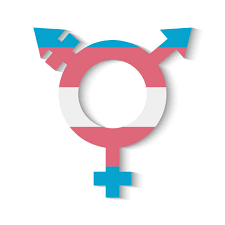Feminine hormones are often shrouded in mystery and misconceptions, yet they play a vital role in women’s health and well-being. These hormones, including estrogen, progesterone, and testosterone, are essential for various bodily functions, influencing everything from physical health to emotional balance. Understanding these hormones can empower women to manage their health better and navigate the complexities of their bodies. This article takes a closer look at feminine hormones, their roles, and how they affect daily life.
Understanding the Basics of Feminine Hormones
Feminine hormones are chemical messengers produced by the ovaries, adrenal glands, and fat tissues that regulate many physiological processes in a woman’s body. The three primary hormones—estrogen, progesterone, and testosterone—are often discussed in the context of reproductive health, but their influence extends far beyond that. These hormones work in harmony, creating a symphony of reactions that affect everything from metabolism to mood. Understanding how these hormones interact can offer insight into a woman’s overall health.Bottom Surgery Results HealedFeminine Voice Training
The balance of these hormones is essential for optimal functioning. A woman’s hormone levels fluctuate throughout her life, influenced by factors such as age, menstrual cycle, and lifestyle. Ironically, while these hormones are often associated with femininity, they are not exclusive to women; men also produce these hormones but in different ratios. This delicate balance can be disrupted, leading to various health issues, which highlights the importance of maintaining hormonal harmony.
The Role of Estrogen in Women’s Health
Estrogen is often hailed as the "female hormone," and for a good reason. This hormone is crucial for the development of secondary sexual characteristics, such as breasts and wider hips, and plays a significant role in the menstrual cycle. It also aids in maintaining bone density, regulating cholesterol levels, and supporting cardiovascular health. Estrogen is produced primarily in the ovaries, and its levels fluctuate throughout a woman’s life, peaking during the reproductive years and declining during menopause.
But estrogen isn’t just about reproduction and physical traits; it also influences mood and cognitive function. Many women report feeling more energetic and emotionally stable during times of high estrogen levels, like the follicular phase of their menstrual cycle. However, when levels drop—either due to natural aging or hormonal imbalances—women may experience symptoms like fatigue, mood swings, and even depression. Understanding estrogen’s multifaceted role can help women make informed health choices.
Progesterone: The Hormone That Prepares the Body
Progesterone is another essential hormone that plays a crucial role in the menstrual cycle and reproductive health. After ovulation, progesterone levels rise, preparing the uterus for a potential pregnancy. If fertilization occurs, progesterone helps maintain the pregnancy; if not, its levels drop, triggering menstruation. This hormonal dance is vital for women’s reproductive health and can influence everything from ovulation to fertility.
Beyond reproduction, progesterone has several other roles in the body. It acts as a natural diuretic, combating bloating and water retention, and it can promote better sleep by making you feel more relaxed. Some studies even suggest that progesterone can have a positive effect on mood, potentially counteracting some of the emotional ups and downs associated with estrogen fluctuations. By understanding progesterone’s role, women can better manage their menstrual cycles and overall health.
Testosterone’s Surprising Impact on Women
Often thought of as a male hormone, testosterone is also crucial for women, albeit in smaller amounts. It is produced in the ovaries and adrenal glands and plays an important role in bone density, muscle strength, and libido. While testosterone is often linked to energy and vitality, it can also impact mood and cognitive function. Many women may not realize that low testosterone levels can contribute to fatigue, loss of motivation, and decreased sexual desire.
Interestingly, the relationship between testosterone and femininity is complex. While excessive testosterone can lead to conditions like polycystic ovary syndrome (PCOS), which affects menstrual cycles and fertility, a deficiency can also bring its own challenges. Striking a balance is key, and women should be aware of the signs of hormonal fluctuations. Regular check-ups and open conversations with healthcare providers can help women maintain their testosterone levels and overall well-being.
How Hormones Affect Mood and Emotions
Hormones have a significant impact on mood, and many women experience this firsthand through the ups and downs of their menstrual cycle. Estrogen and progesterone levels, for instance, influence neurotransmitters such as serotonin and dopamine—both critical for regulating mood. When these hormone levels fluctuate, women may find themselves feeling more anxious, irritable, or even depressed during certain phases of their cycle.
Moreover, hormonal changes can also affect cognitive function and memory. Many women report "brain fog" during specific phases of their menstrual cycle, often due to hormonal fluctuations. Understanding how these hormones impact emotions and mental clarity can empower women to approach their moods with compassion and awareness, recognizing that these feelings are often tied to hormonal changes rather than personal failings.
The Menstrual Cycle: A Hormonal Rollercoaster
The menstrual cycle is a perfect illustration of the hormonal rollercoaster many women experience. Typically lasting around 28 days, the cycle consists of several phases—menstrual, follicular, ovulation, and luteal—each characterized by varying levels of hormones. For instance, during the follicular phase, estrogen levels rise, leading to increased energy and mood. In contrast, the luteal phase sees a drop in estrogen and a rise in progesterone, which can lead to premenstrual syndrome (PMS) symptoms like bloating, mood swings, and fatigue.
This cyclical nature can feel tumultuous, leading many women to feel like they are on an emotional and physical rollercoaster. However, understanding this cycle can help women anticipate changes and develop coping strategies. Whether it’s keeping a journal, practicing mindfulness, or adjusting exercise routines, being proactive can make the monthly hormonal fluctuations more manageable.
Hormonal Imbalances: Signs and Solutions
Hormonal imbalances can manifest in various ways, from severe PMS and irregular periods to fatigue, weight gain, and mood disorders. Recognizing the signs of hormonal imbalance is the first step toward seeking help. Some common symptoms include changes in skin, hair loss, difficulty sleeping, and unexpected changes in libido. If you notice a combination of these symptoms, it could be a sign that your hormones are out of whack.
Fortunately, there are many solutions available for managing hormonal imbalances. Lifestyle changes, such as a balanced diet rich in whole foods, regular exercise, and stress management techniques like yoga and meditation, can significantly impact hormonal health. For more severe imbalances, consulting a healthcare provider about hormone therapy or other medical interventions may also be necessary. Knowledge is power, and taking control of hormonal health can lead to a happier and healthier life.
Tips for Maintaining Hormonal Harmony in Daily Life
Maintaining hormonal harmony is key to feeling your best. One effective approach is to prioritize a balanced diet encompassing plenty of fruits, vegetables, whole grains, and healthy fats. Omega-3 fatty acids, found in fish and flaxseed, can help regulate hormone production. Staying hydrated and limiting sugar and processed foods can also support hormonal balance. Moreover, regular physical activity not only helps manage weight but also releases endorphins, promoting emotional well-being.
Stress management is equally crucial in maintaining hormonal balance. Chronic stress can lead to elevated cortisol levels, which can interfere with other hormones. Incorporating relaxation techniques such as meditation, deep breathing exercises, or even journaling can help manage stress levels. Establishing a consistent sleep schedule is also important, as quality sleep can significantly impact hormonal regulation. By adopting these habits, women can foster a healthier relationship with their hormones and improve their overall quality of life.
Understanding feminine hormones is a journey that empowers women to take charge of their health. By recognizing the roles of estrogen, progesterone, and testosterone, along with their impacts on mood and the menstrual cycle, women can navigate the ups and downs of hormonal changes with greater ease. From recognizing signs of hormonal imbalances to implementing daily strategies for maintaining equilibrium, knowledge is the key to living a balanced life. Embrace your hormonal journey—after all, it’s all a part of being wonderfully and uniquely you!

